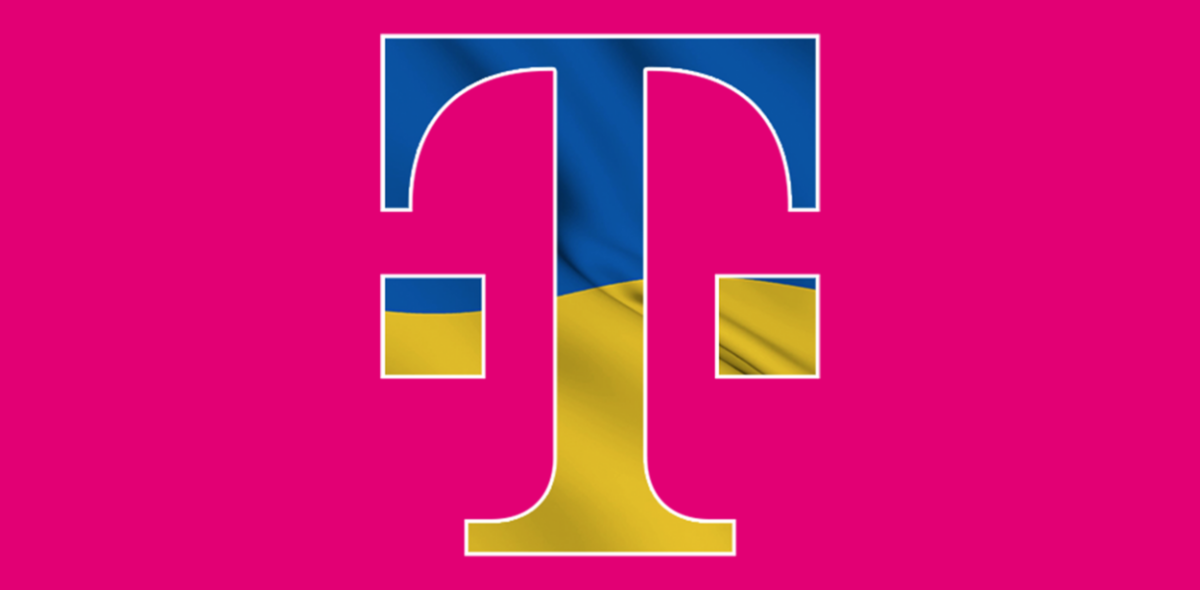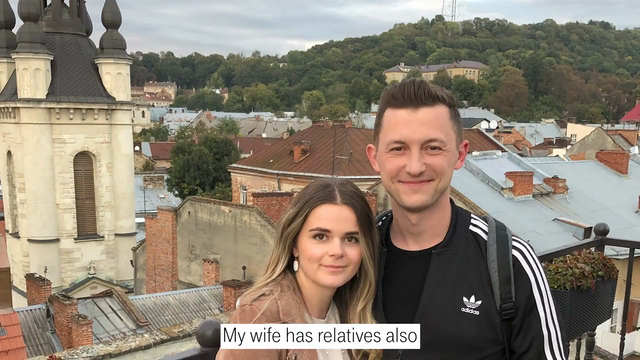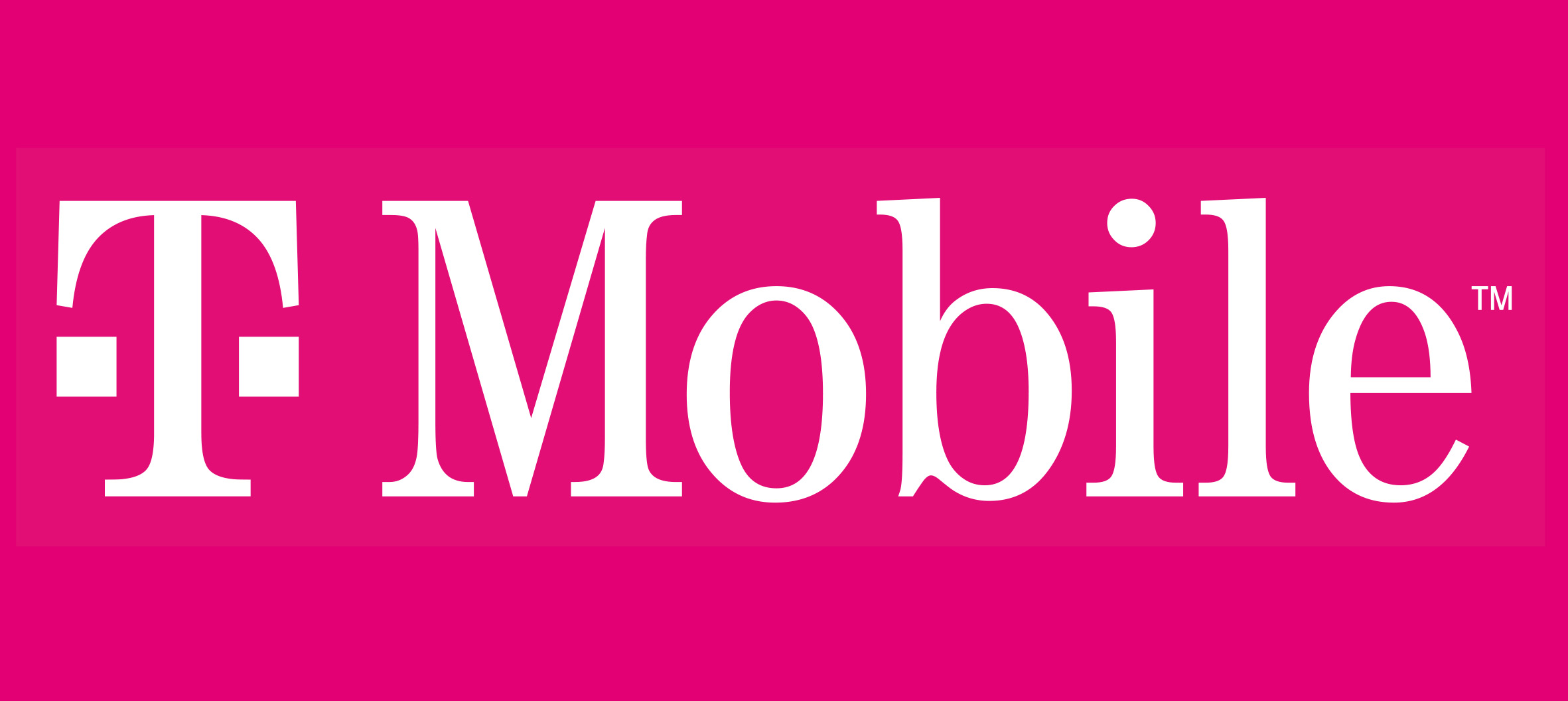Employee Spotlight: Making Connections Count When They're Needed Most
Since the invasion of Ukraine, stories outlining the ways in which connectivity can play in our world have punctuated the news with hope. And those with loved ones in Ukraine, Russia and nearby countries can’t possibly undercut the most traditional benefit of a connected world: the ability to talk with those you care about with less complexity, even in complex times.
“Every morning when I wake up and every night before I go to bed, I talk to all of them and make sure they're okay,” said Yevheniy “John” Yuzvyak, a senior technology procurement manager at T-Mobile, of his family and friends in Ukraine. “Though, they’re not always okay, right?”
Born just fourteen days after Ukraine declared independence in 1991, John immigrated to the U.S. with his mother and sister a decade later. Last week, inspired by concern for family, he took to LinkedIn to share a first-time personal plea with his network and offer a list of organizations to support.
“I was born in Ukraine, have family and friends in Ukraine, and feel hopeless and heartbroken for those who wait for daylight every morning because the sound of sirens and bombs keeps them up at night,” his post read. Over the past few weeks, tracking and touching base overseas have offered comfort.
“We have some family and friends who have evacuated, and I’ve got some family and friends in Kyiv, Donetsk, the Luhansk area. We still have some family in Odesa, but the majority of my immediate family is in western Ukraine, around Lutsk and Lviv. In Mariupol and a few other regions, you can't get in touch anymore because of the heavy bombings to the southern part of Ukraine,” John said.
“Luckily, my family and friends who haven’t fled are still in the western part of Ukraine, so we’re still able to communicate with them daily through Skype or Viber, or by calling them directly. My grandma, she went yesterday and bought some food and water and some clothes for some of the soldiers, and I sent her money for that, and, you know, it just helps from a morale perspective, if nothing else.”
“I just can't imagine not being able to reach them and knowing all the things that are going on,” Vladimir “Vladi” Zhukovskiy, a manager of creative direction at the company’s T-Studios, agreed. Vladi and his loved ones immediately started a group chat to keep in touch — a reason he found T-Mobile’s extended waiver for international long-distance and international roaming charges for calls and SMS made between the U.S. and Ukraine and surrounding impacted regions helpful.
“I was born in the western city of Lviv, Ukraine, and my family moved to the United States in 1995 when I was about seven and a half,” he explained. “Ukraine is still home. My wife has relatives in the eastern part of Ukraine, where the majority of the fighting has been going on lately. I think the outpouring of support from friends and colleagues at T-Mobile has been such a tremendous help.”
Like John’s, Vladi’s family is working to support those around them, but both explained that simply passing along the outpouring of support they receive from stateside friends and colleagues has a powerful impact on those they love.
John is quick to point out that the situation impacts many, and that casting a wider net when showing support for impacted friends is wise: “This is not a war between Ukrainian and Russian people. This is a war between an authoritarian Russian government and the Ukrainian people, so there are people suffering on both sides. My grandfather was from Russia, so we have family and friends there, and it has been really difficult to hear them call and say, ‘Hey, please don’t hate us.’ You know, of course, we don’t hate you.”
Because of the countries’ long history, John explained, “everybody who is both Ukrainian or Russian has family or friends in Ukraine and Russia. And beyond that, things like this conflict happen all over the world. It impacts me right now, but this isn’t the first time, right? A lot of different people, and employees at T-Mobile, deal with these things on a daily basis.”
For Lidia Wiens, a communications specialist in T-Mobile's internal communications department, that shared history is as personal as it gets. “My mother is Ukrainian, and my father is Russian and German," she said. "My family moved from Ukraine to Estonia because there were more opportunities. So, I was born in Estonia, and then we emigrated from Estonia when I was six.”
“I went through ESL in school as a Russian speaker, but we spoke Russian because it was the ‘more common’ language. While we went to a Russian church, my mother’s side of the family went to a Ukrainian church. When my mother speaks to her sister, they speak Ukrainian. For me, it just felt like we were part of a mishmash Slavic community, and I don’ t even think my American friends in school made a distinction.”
Using Facebook Messenger to connect with her Aunt Nelya, who’s been sheltering in Kyiv over the past few weeks, hasn’t always been easy. “It can be hard to read posts where people I know are literally asking ‘Does anyone know anyone in Poland? Because my cousin's family of four are trying to get placed.’ So, I have to limit my exposure somewhat.”
Still, Lidia’s found relief even in the simplest connectivity feature of the platform: “I’m glad that it’s easy to check in on her, but even when we’re not speaking, the green indicator that shows she’s online reassures me. It’s a huge comfort just to know she’s out there, and she’s okay.”
Nina Spasikova, a communications manager in technology who emigrated from Macedonia in 2013, knows both the tension and the relief of connection stretch across Europe. “My region has been rattled by wars,” she said. “When Yugoslavia fell apart, those wars lasted forever, and though people thought they wouldn’t see another conflict of that scale in this area, these are the wounds people carry.”
The lasting anxiety from that shared experience has prompted preparation conversations. Over the phone, Nina and her mother have discussed preparing a go-bag, and Nina’s reminded her to keep her gas tank full. At the same time, Nina has been using Facebook Messenger to connect with a close college friend sheltering in Kyiv.
“Before the invasion, when troops began massing on the border, I thought of her immediately and reached out,” Nina said. “I didn’t know what to say, so I kept it very simple: I’m thinking about you a lot, and I have no idea how to help but I just want you to know I’m here.”
Fresh from the pandemic’s lockdown phases, we know the impact checking in on others can have. But for many who might want to reach out, it’s hard to know what to say. “It’s tough when you’re going through something like this and someone asks you how you're doing,” John said. “I've learned to accept that as a caring question, but I've had other people, even in my family, respond with, ‘Well, why would you even ask that? You know I’m obviously not doing well, how could I be doing well?’”
“I think it comes down to the individual and what they need, which can be hard. When it’s someone you know well, I think there may be an understanding of what to say, but I always take a lighter, cautious approach initially, then see how the person I’m reaching out to responds and go from there.”
Listening Circles led by T-Mobile’s Diversity, Equity & Inclusion team have gained ground as a go-to resource for employees during challenging times. The company has offered an open call to establish Listening Circles about the conflict since the invasion.
Facilitating these conversations with a set of ground rules for intentional engagement is important, Holli Martinez, VP of DE&I, shared. “Impactful listening is about prioritizing the other person’s experience,” she explained. “That can be in a circle, or it can be one on one.”
Some of the basics — reminders to come from a place of curiosity, assume positive intent, share mutual respect, and to listen and let others tell their story without interrupting — may seem like a given. But certain nuances can make a big difference.
T-Mobile DE&I Listening Circle Tips
Be sincere and open.
In situations like these, where sensitivities are high, it’s important to embrace the discomfort of not knowing. Admit your concern and give yourself room to make mistakes. That could be as simple as saying; ‘I’m nervous I won’t say this right,’ or ‘I’m worried I may offend you, please let me know if I do.’
Be supportive and present.
These will almost without fail be emotionally charged conversations, so it can help to remind your friend or family member that your conversation with them is a safe space. Start by acknowledging your support, give reassurance about your trustworthiness, and stay centered and in the moment throughout the conversation.
Be empathetic, not just sympathetic.
We tend to think of sympathy as sharing the feelings of another person, while empathy is understanding another’s feelings, though you may not necessarily share the same experience. Sympathy is often an instinct, while empathy is a choice to connect with a person and let them know they are not alone.
That empathy is more powerful when you speak from your authentic experience. Once you’ve shown your support and listened fully, draw from your own experience to respond. And if you don’t feel you have a comparable experience, be honest. It can be helpful to say, “The closest thing I can draw from is this, but I know it’s not the same, and I just want you to know I support you," instead of forcing a comparison, which might feel minimizing.
“Everybody has a different way of processing things,” offered John, “and everybody has a different way that they accept help, or want help offered to them. But one of the best ways, you know, for me, has just been saying, ‘Hey, we support Ukraine.’”




